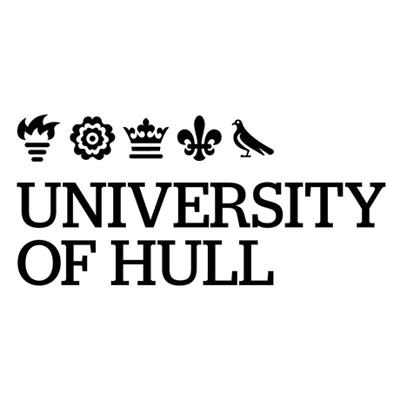THRIVE - The Hull Early Career Researcher Integrated Development Programme
To support early career researchers (ECRs) the University of Hull developed a bespoke, integrated and cohort-based programme of training and development accessible to early career researchers across the entire university. THRIVE (The Hull ECR Integrated deVElopment programme) runs over 11 months, with a half-day session each month. Sessions, delivered by a combination of internal and external trainers, cover core research skills, navigating a changing funding landscape, and provide fellowship writing retreats to give researchers time and space to gestate research projects.

What kind of an organisation are you in the context of the Concordat?
The University of Hull is a medium-sized research-led university.
What challenge were you trying to address with this initiative?
As a medium-sized university structured into independent faculties and research institutes, the University of Hull had a relatively small and disparate body of early career researchers. Where early career researchers accessed development and training opportunities these were generally either offered at faculty- or institute-level, or were offered through one-size-fits-all sessions for all researchers. We wanted to enhance training support for early career researchers at Hull, and provide a more holistic framework for ECR development. We also wanted to build greater community among ECRs, and build towards a better framework of representation for ECRs on university committees.
What did you do and how does this align with the Principles and keywords you have selected below?
We developed a bespoke, integrated and cohort-based programme of training and development accessible to early career researchers across the entire university. THRIVE (The Hull ECR Integrated deVElopment programme) runs over 11 months, from September to July, with a half-day session each month. Sessions, delivered by a combination of internal and external trainers, cover core research skills, navigating a changing funding landscape, and provide fellowship writing retreats to give researchers time and space to gestate research projects. The programme also orientates ECRs in the University’s support for research development. The eleven sessions collectively work to “enable researchers to develop their full potential”, thereby delivering a suite of objectives tied to the third concordat principle.
What were the challenges in implementation and how did you resolve them?
During the design phase, arriving at consensus regarding content of the sessions was slightly challenging, and determining the areas of skill building and training deemed core was a source of debate and disagreement. Securing engagement in the programme proved initially difficult, due to the limited effectiveness of internal communications. Scheduling of sessions was also somewhat challenging, as a large percentage of participants have teaching obligations which are not timetabled long before the commencement of the semester. While engagement in early sessions has generally been good, we have seen some drop off, and sustained engagement may be a challenge. Where internal trainers have been used the quality of the sessions has been variable; and the response to the external trainers was, while generally positive, somewhat mixed. The most significant challenge is the diverse nature of the cohort. This makes it difficult to pitch appropriately the content of sessions.
How did you evaluate the impact of your initiative?
As the pilot cycle of THRIVE is still ongoing, evaluation of the programme as a whole will be done upon its completion. Evaluation of specific sessions is done through a feedback form, and the experience of the cohort as a whole has been evaluated in a midpoint review. Beyond professional and career development a secondary objective of the programme is to enable participants to incubate funded research projects. At six and twelve months after completion of the programme participants will be invited to feedback on the successful submission of bids attached to the projects developed during THRIVE, as well as any broader professional development attributable to the skills and knowledge developed during the programme.
Were there any surprising or unexpected consequences?
Whereas we were concerned that there may be limited demand for THRIVE, in practice the programme was oversubscribed, leading us to run parallel cohorts for around half of the sessions. The demographic of applicants was broader than we anticipated, including both those not yet holding a PhD, and those with 10+ years of postdoctoral experience in research and teaching positions. This demonstrated to us an unmet demand for the kind of cohort-structured and development-based training THRIVE offered, as distinct from the discrete training sessions offered by the university, which were often undersubscribed.
What advice would you give others wanting to do this?
We used a flexible approach to eligibility requirements which enabled a wider pool of researchers to access the programme. The use of a combination of internal and external trainers in a bespoke programme meant we were able to benefit from sector-level expertise as well as institutional knowledge.
More information about this practice example:
Beneficiaries: Research staff Research and teaching staff
Stakeholders: Managers of researchers Professional staff Senior/executive team
Concordat principles: Professional and career development
Keywords: Training Professional development Research identity Research culture Researcher voice Career management Diverse careers Recognition
